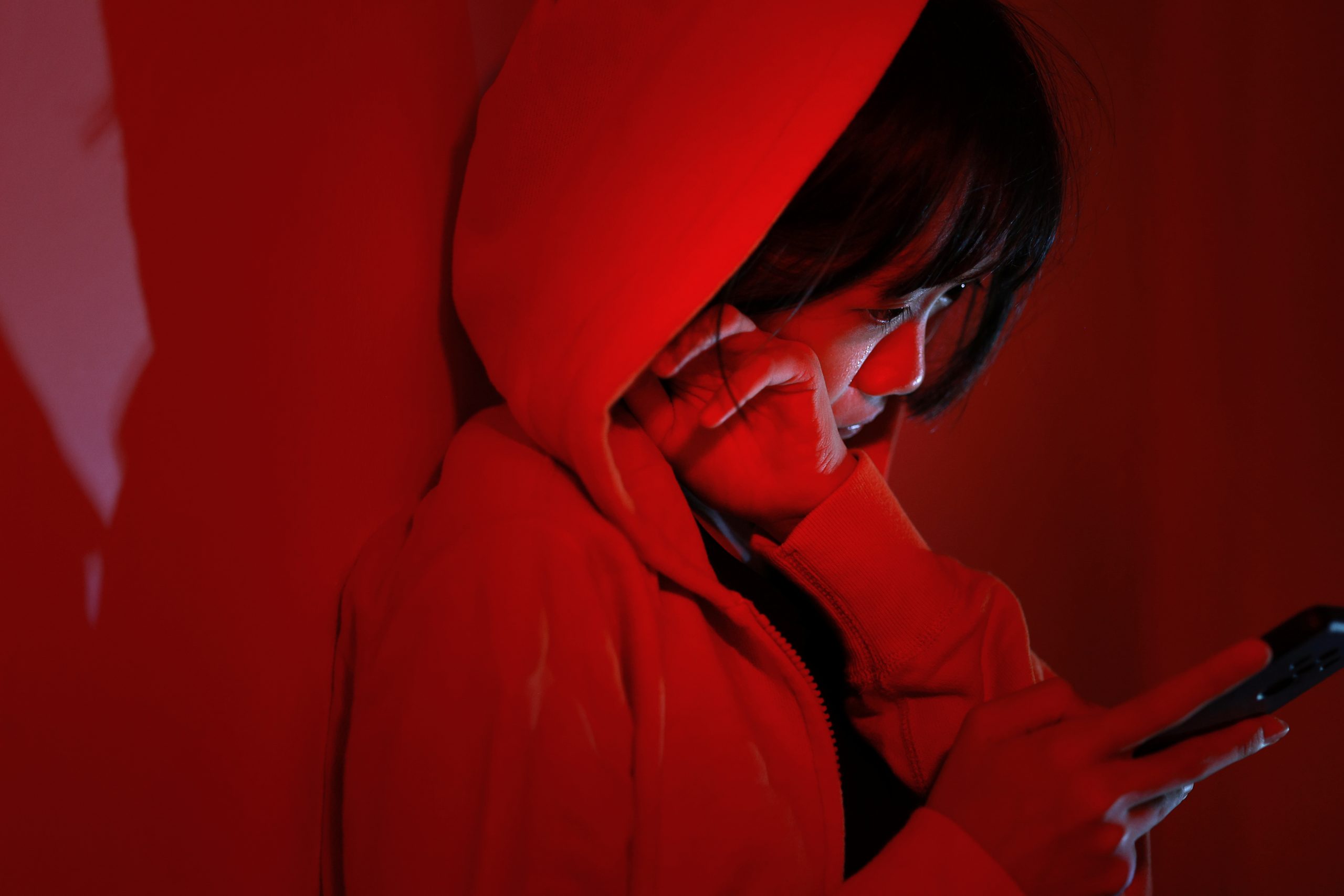Common signs that a teen may be addicted to social media include spending excessive time online, becoming anxious or irritable when unable to access social media, neglecting schoolwork, withdrawing from in-person activities, and experiencing sleep disturbances. Additional indicators include a constant need for validation through likes and comments and a preoccupation with checking updates that interferes with regular life.
Seeing your teen constantly glued to their phone can be worrying, especially when it starts affecting their offline life.
Today’s digital natives exist both online and offline, and an online social life is as important as an offline one. But losing that balance can be detrimental to teen mental health, and especially younger teens are susceptible to experiencing a deficit in social skills because of excessive social media use.
Becoming irritable without access to social media, becoming increasingly anxious in real-life situations, experiencing loneliness, body image issues, and neglecting responsibilities to spend more time online are just a few indicators of a growing problem.
This article explores some common signs your teen may be addicted to social media.
What is Social Media Addiction?
Behavioral addictions are learned cycles of behavior that significantly interfere with daily life.
Some activities can be particularly enjoyable or pleasurable—it feels good to receive likes on a picture you’ve posted, for example. But these activities can become harmful if they preoccupy most of a person’s day-to-day life.
Other examples of a behavioral addiction include a gambling addiction, sex addiction, or porn addiction.
In the same way, a social media addiction can negatively impact a teen’s offline social life, their relationships with friends and family, their grades, and their mental health.
Signs Your Teen May Be Addicted to Social Media
Teens can become addicted to social media due to its constant accessibility and the instant gratification brought by engagement, which can range from likes and comments to conversation strings on Twitter/X, arguments on Reddit, or forum debates.
The need for social validation and fear of missing out (FOMO) on what’s happening online can drive excessive usage, often leading to neglect of real-world activities and relationships.
Here are some common signs your teen may be addicted to social media:
Emotional Signs of Social Media Addiction
- Anxiety: Feeling anxious or irritable when unable to access social media or when social media use is restricted.
- Dependence: Becoming overly reliant on social media to cope with negative emotions or turning to social media as an immediate response to stress, confrontation, or anxious situations.
- Compulsion: Constantly thinking about or planning the next social media post and feeling preoccupied with checking notifications and updates, often multiple times per hour, every waking hour.
Behavioral Signs of Social Media Addiction
- Excessive Use: Excessive use includes using a phone to check social media at inappropriate moments, such as in the middle of a conversation, during class, or when they should be resting or sleeping.
- Neglect: Neglecting schoolwork, chores, or even personal hygiene due to excessive time spent on social media.
- Isolation: Preferring online interactions over face-to-face interactions with family and friends, leading to social withdrawal and feelings of social anxiety (worrying about interactions with others).
- Risk-Taking: Engaging in risky behaviors online, such as sharing personal information, meeting strangers, or participating in cyberbullying or online challenges for likes, engagement, and attention.
Physical Signs of Social Media Addiction
- Eyestrain: Spending long hours staring at screens can lead to symptoms like dry eyes, headaches, and general fatigue.
- Sleep Problems: Disrupted sleep patterns, often caused by using social media late into the night or early morning, can affect mood, growth, and mental development. Poor sleep due to social media or phone use is a serious symptom.
- Body Image Problems and Eating Disorders: Excessive social media use, as well as a poor or unhealthy relationship to social media can result in problems with self-esteem, higher likelihood of body image issues, and a higher incidence of disordered eating and problematic behavior to conform to popular beauty trends or (often faked) standards.
Impact on Academic and Social Life
A social media addiction can significantly impact a teen’s academic and social life.
Behavioral addictions steal time away from everything, including everyday conversations, time spent studying, and the chance to be mindful in the absence of instant gratification and mental stimulation. Excessive time spent on social media can lead to missed deadlines, poor test scores, and lower academic performance.
Socially, addiction to social media may result in reduced face-to-face interactions, withdrawal from real-life social activities, and difficulties in forming and maintaining meaningful relationships offline. This can contribute to feelings of isolation and loneliness, further affecting their overall well-being and making teens more susceptible to self-esteem problems, body image issues, and social media-related symptoms of anxiety and depression.
Not all teens who struggle with social media addiction or internet addiction become socially withdrawn.
Extroverted teens can also struggle with a social media addiction or a greater need for validation from strangers online.
Steps to Address Social Media Addiction
A behavioral addiction, like a social media addiction, is often part of a larger problem with a teen’s coping styles and capacity to manage stress.
Some teens are more likely to struggle with an addiction to social media than others and are more likely to experience negative effects due to excessive social media use, such as worse self-esteem and feelings of anxiety when offline.
Addressing a social media addiction might begin with helping teens find alternative ways to cope with their negative thoughts and feelings, and find other, better habits to improve their mental resilience, self-esteem, and self-image.
In extreme cases – where social media addiction is part of a teen’s wider list of problems, such as severe anxiety, eating disorders, or suicidality – professional mental health treatment becomes crucial. Residential treatment gives teens a safe space to recover from social media use and learn to cope with negative emotions in different, healthier ways while reintroducing smartphone usage in a limited capacity.
Treatment for Teens in California
Are you worried about your teen’s behavior and social media consumption?
Visions Treatment Centers specializes in residential care for teen mental health and addiction issues, including behavioral addiction. Our experienced team provides personalized care, ensuring teens receive their needed support.
Take the first step towards recovery and contact Visions Treatment Centers today.
Conclusion
For teens today, an online social life is as important as an offline one.
But sacrificing a healthy social life and fulfilling interpersonal relationships for likes, comments, and engagement online is a strong sign of a serious behavioral addiction toward social media.
It’s important to recognize the signs of social media addiction and help teens find better ways to validate themselves and seek personal fulfillment.








